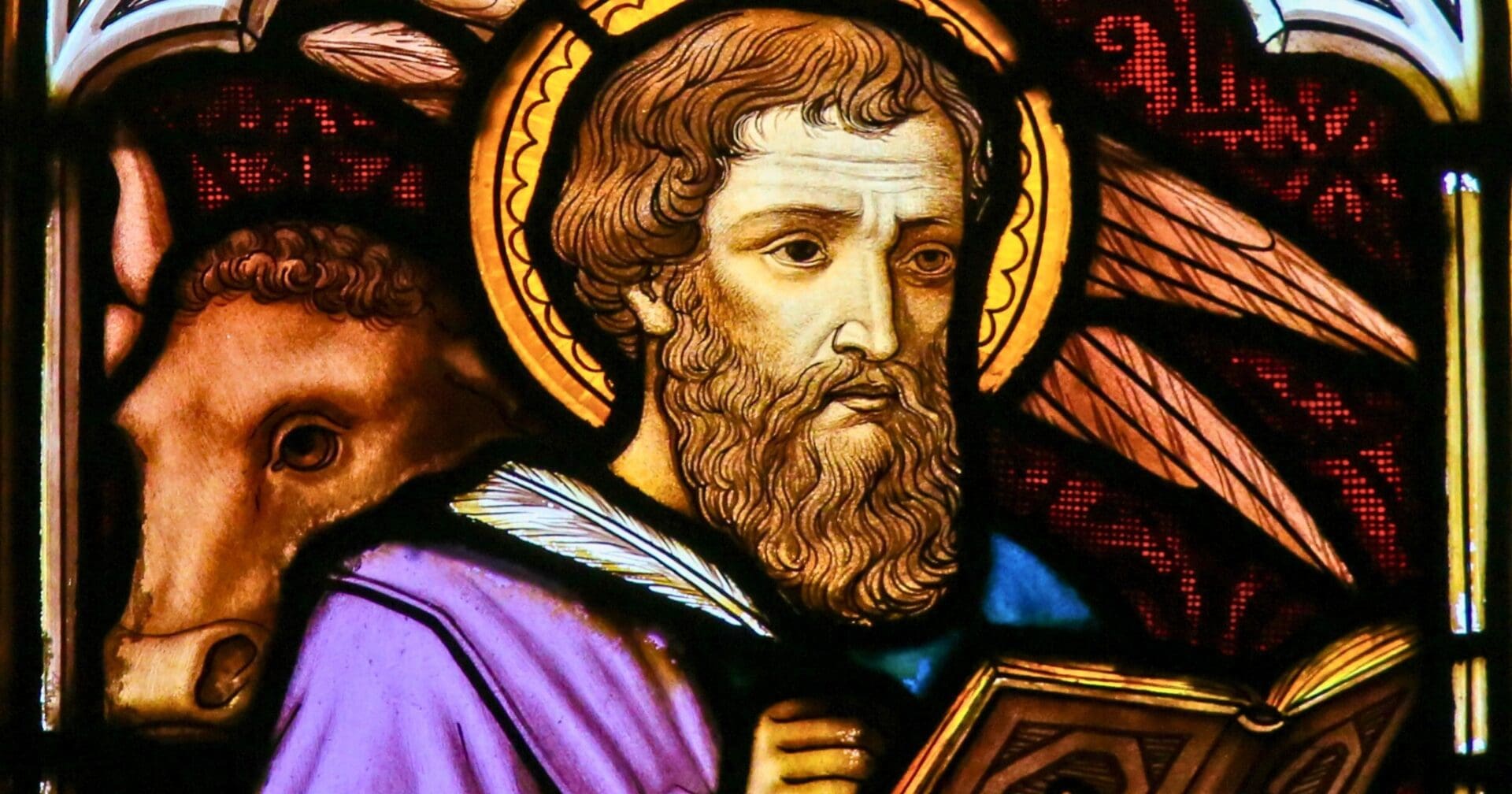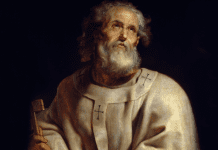St. Luke, with a Latin origin to his name, is believed not to be of Jewish descent. Early records depict him as a Syrian from Antioch, which aligns with his deep knowledge of the Antiochean Church and his adeptness in literary Greek showcased in his writings. He is traditionally recognized, and as mentioned in St. Paul’s text (Colossians 4:14), as a physician. St. Luke’s Gospel stands out in the New Testament for its Greek literary finesse, reminiscent of celebrated writers like Xenophon.
It’s likely that St. Luke’s introduction to Jesus’ disciples came post Jesus’ demise in the early 1st century’s 30s. His Gospel hints at a unique familiarity with Mary, Jesus’ mother, and he’s often described as an associate of St. Paul and St. Mark in tradition. Around 49 A.D., during St. Paul’s second missionary journey, St. Luke partnered with him, starting at Troas and later journeying to Macedonia (Acts 16: 11-12). Luke possibly stayed in Philippi and later reunited with St. Paul at the end of his third missionary journey en route to Jerusalem (Acts 20:5, 26:18).
The Acts chronicle St. Luke accompanying St. Paul to Rome when the latter was imprisoned awaiting Caesar’s judgment (Acts 27:1, 28:26). Subsequent letters from St. Paul to Philemon (24) and Timothy (II, 4:11) suggest that St. Luke was by St. Paul’s side until his last moments. An ancient document, the Anti-Marcionite Prologue, reveals St. Luke passed away as a bachelor in either Boeotia or Bithynia around the late 1st century at age 84.
The Third Gospel’s ascription to St. Luke hasn’t faced notable challenges, and similarly, the Acts of the Apostles is widely accepted as his work. While his Gospel shares similarities in content and structure with those of St. Mark and St. Matthew due to a shared source, St. Luke had an additional, exclusive source. Some scholars hypothesize this unique source to be Mary, Jesus’ mother, and her close circle.
St. Luke contextualizes Jesus’ life within a three-part historical framework, placing Jesus at the core, flanked by the era of the Law and the Prophets and the advent of the Christian Church. Academic consensus places the crafting of St. Luke’s Gospel between 70 and 80 A.D., with indications that it was written outside of Palestine, primarily for a non-Jewish audience.
Editorial credit: jorisvo / Shutterstock.com




















HELP NY FMILY AND CLOSE FRIENDS ST. LUKE . DRIVE IUT THE EVIL DWELLING IN MY HO– USEHOLD. SEND ST MICHAEL THE ARCHANGEL RESTORE FRIENDSHIP WITH ALL MY FRIENDS AND MY SISTER
On this feast day, we found out we were pregnant with our son, after being told we would never conceive. So his name is Luke in honor of St. Luke’s feast day.
São Lucas, Rogai por nos. Amém
Saint Luke, pray for us.
Luck is always good, Pray for us St Luke.
Most wonderful St. Luke
you are animated by
the Heavenly Spirit of Love.
In faithfully detailing
the humanity of Jesus,
you also showed His Divinity
and His genuine compassion
for all human beings.
May the Holy Spirit,
instructor of the faithful,
help me to understand
Christ’s words
and faithfully apply them
in my life.
Amen.
Saint Luke, pray for us.
Saint Luke pray for us amen
Saint Luke, pray for us. Especially for all parish churches that bear your name and all children baptized into the Faith with your name or in those holy places. The first Sacrament is so crucial to salvation as Saint John the Baptist preached, paving the way for Our Lord Jesus Christ. Thank you, Saint Luke, for your heroic virtue, your supreme intelligence in writing, and your compassion as a physician, attending even to Saint Paul on the brink of martyrdom. Intercede for all souls in need of calm decisive bold guidance. Amen.
Lord Jesus Christ, may your word take root in our hearts and transform all our thoughts and actions. Give us wisdom and understanding that we may know your will for our lives and have the courage to live according to it. Amen.